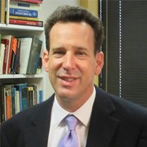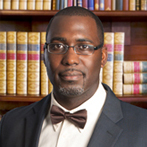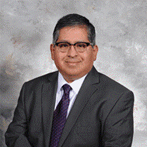Graduate Certificate in History (Online)
Director of Graduate
Certificate in History
Dr. Alexander Bielakowski
713-221-8994
bielakowskia@uhd.edu
Graduate Degree and Graduate Certificate Application Deadlines
Summer 2024 - May 15, 2024
Fall 2024 - August 1, 2024
This certificate program is designed to provide 18 graduate semester credit hours in history, a necessary credential in Texas for teaching dual credit (high school/college credit) and lower-level college courses in U.S. History.* To be enrolled in this program, students must either hold a master’s degree or be simultaneously enrolled in the MAT program with “History” selected as their “area of specialization.”
The courses are taught by nationally recognized scholars who regularly teach the U.S. history survey courses as well as advanced seminars in their respective specialties. This program is tailored for high school history teachers in its coverage of (1) the breadth of U.S. history content; (2) the major debates that engage American historians; and (3) the advanced research skills used by the modern historian.
* Each institution establishes its own interpretations for SACSCOC credentials for its faculty; we encourage you to check with your institution before choosing courses in the program in consultation with the Program Director.
Admission Information
All applicants must have proficiency in English (if a graduate of a university in which English is not the native language) provided by an adequate TOEFL (IBT score of 81) or IELTS (6.5) score.
The recommended/preferred GPA for applicants is 2.5 or higher.
Applicants must either:
- Have both a bachelor’s degree and a master’s degree from an accredited university
-OR-
- Have a bachelor’s degree from an accredited university and gain admission to or be concurrently enrolled in the UHD MAT program.
How to Apply
The application process varies depending upon whether the prospective student already holds a master’s degree or only a bachelor’s degree.
Applicants with a Master’s Degree
Applicants with a Master’s Degree must complete and submit all of the following items in order to be considered for admission. Writing samples can be uploaded through the applicant portal, emailed to gradadmissions@uhd.edu, or mailed to:
Office of Admissions – Graduate Admissions
University of Houston-Downtown
One Main Street, Suite GSB 308
Houston, TX 77002-1001
- Submit an application
- Pay the $35 application fee
- Request/submit official transcripts from all colleges and universities previously attended to the email or mailing address above (including community college work and prior graduate work).
- Provide a 2,000-word writing sample. (We ask that you compose a single-authored, research oriented writing sample on a topic of general interest using a generally recognized academic style sheet for references (MLA, APA, or Chicago).
- Provide TOEFL scores of 550 with section scores of 50 or higher (if a graduate of a university in which English is not the native language).
Applicants with no Master’s Degree
Students who do not have a master’s degree will need to apply to the Master of Arts in Teaching (MAT) program provided by the UHD College of Public Service and select “History” as their “area of specialization.” Additional information regarding the application process for these students can be found in this FAQ (pdf) and online on the College of Public Service website.
Courses Offerings (3 hour each):
- HIST 5302 - Research in United States History
- HIST 5303 - U.S. Relations with Latin America
- HIST 5304 - From Colonization to Revolution, 1607 – ca. 1800
- HIST 5311 - Studies in the History of American Education
- HIST 5321 - Studies in Mexican-American History
- HIST 5329 - Seminar in U.S. Women's History
- HIST 5331 - Historians and the "Culture Wars"
- HIST 5332 - Seminar in U.S. Civil Rights History
- HIST 5355 - U.S. Military History
- HIST 6302 - Seminar in U.S. History
- HIST 6303 - Seminar in Texas History
- HIST 6304 - Slavery and Freedom in the United States
Scheduled Graduate Instructors

Austin Allen

Alexander Beilakowski

Theresa Case

Jonathan Chism

Gene Preuss

David Ryden
Dr. Allen is a nationally recognized expert on American slavery and the Constitution, having written an important book and several articles on the Taney court and its infamous Dred Scott ruling. Dr. Allen teaches courses on the Antebellum South, Slavery and the Law, American Legal history and various courses in nineteenth-century U.S. history.
Dr. Beilakowski Alexander M. Bielakowski is a former U.S. Army Reserve officer who has published on such diverse topics as the final years of the U.S. horse cavalry in the 1920s-30s, African Americans in World War II, and Dwight D. Eisenhower as the first commander of NATO. He spent more than decade educating military officers at the U.S. Army Command and General Staff College, Fort Leavenworth, Kansas. Currently, he is Editor-in-Chief of the peer-reviewed journal U.S. Military History Review.
Dr. Case explores working-class history with a special emphasis on social and cultural history. Her book, The Great Southwest Strike and Free Labor (2010) reconstructed a major railway strike of the Gilded Age. This helped to build and then undermine the first mass organization of industrial workers in US history. Her work on this topic delved into the working lives of "railroadmen," the racial hierarchies and alliances involved in strike organizing, and the context for and debates around industrial violence. Her new area of interest is the history of race and labor in the early twentieth-century South centering on black working-class protest in WWI-era and postwar Texas.
Dr. Chism is a religious scholar who specializes in African American Religious History. His research explores the intersection between religion, race, and politics and seeks to enhance understanding of diverse ways African American religious groups and figures have pursued social justice and transformation in the twentieth century. His dissertation provides a critical history of Church of God in Christ (COGIC) members' engagements in the Civil Rights Movement in Memphis, Tennessee and dispels some scholars' assumption that black Pentecostals' religious beliefs prohibited them from being involved in the Movement. Besides preparing the dissertation for publication, he is interested in continuing to do descriptive work and to use historical, sociological, and theological methods to examine how African American religious groups have endeavored to address post-Civil Rights social concerns such as the "mass incarceration" of blacks and other ethnic minorities in Penal Institutions in the United States.
Dr. Preuss is an associate professor of History. His research focuses on the history of public education in Texas and the nation. His book, To Get a Better School System: One Hundred Years of School Reform in Texas” (2009). He and former US Secretary of Education Lauro F. Cavazos, Jr., co-authored A Kineño’s Journey: On Family, Learning, and Public Service (2016). He teaches courses on US, Texas, the American West, Mexican-American, and African-American history. He is active in state, regional, and national history organizations.
Dr. Ryden's research interest focuses upon slavery in the age of Revolution. He is author of the internationally recognized book, West Indian Slavery and British Abolition (2009), which challenges the conventional wisdom regarding the political and economic motivations behind the final decision to abolish the British slave trade in 1807. He has made presentations on slavery and abolition at a number of centers for Atlantic World research, including the John Carter Brown Library (Brown University), Columbia University, the Institute of Historical Research (University of London), Oxford University, the University of Minnesota, and, most recently, the University of the West Indies, Mona.
Graduate History Course Descriptions
Select on a course number/title below to see the full course description.
This course is designed for graduate students in history to provide training in methods of historical research, historiography, and exposition. It will include library and archival research with emphasis on the use of primary and secondary sources and will culminate in a history research project or projects. The emphasis of the course may be US or non-US history, depending on the instructor.
The projected outcome includes:
- Explain major historiographical schools of thought and debates.
- Use advanced library databases and internet sources relevant to locating primary and secondary sources.
- Pose an arguable, workable research question regarding a historical problem or puzzle.
- Construct a draft research paper and other preparatory work and revise according to professor's directions.
- Write a well-organized historical essay that addresses a historical issue or puzzle, communicates ideas clearly, synthesizes relevant evidence from both primary and secondary sources, and builds a logical argument.
- Format papers and cite source material using the Turabian-Chicago style.
- Express the complexity of meaning embedded in source material.
This course examines the history of U.S. foreign policy towards Latin America since the nineteenth century. It covers the major historical events that have shaped relations between the two regions, including the Monroe Doctrine, the Mexican-American War, the Spanish-American War, the Good Neighbor Policy, World War II, and the Cold War. Students will analyze the historiographical debates on U.S.-Latin American relations and conduct research on a topic of their choosing.
This graduate course focuses on the establishment and development of British American societies in the seventeenth and eighteenth centuries. The curriculum will explore the rationale for the settlement of the most significant colonial regions; the political and social structures that sustained these communities; and the process that led to de-colonization in North America and to the birth of the United States. The historiographical component of this course will show how the narrative of early America came into being and discuss how recent scholarship has contributed to modern textbook accounts of the period.
A graduate readings course exploring critical topics, events, and individuals that influenced the history of American education, and analyzing the historiography of the field.> At the conclusion of this course, student should be able to:
- Describe past events, actions, and issues in American Education in their historical context, and formulate critical questions about those events, actions, and issues.
- Summarize the significant historiographical works on those past events, actions, and issues in American Education, and categorize the historiographical context of the questions they have developed.
- Identify, evaluate, and interpret primary sources related to answering the questions they have developed about the American Education history.
- Communicate how historians of American Education have organized their investigation of the questions, summarize their findings, and defend the conclusions of their research to the community.
A graduate readings course exploring critical topics in the history of the Mexican-American experience, and analyzing the historiography of the field. At the conclusion of this course, student should be able to:
- Describe past events, actions, and issues regarding Mexican-American history in their historical context, and to formulate critical questions about those events, actions, and issues.
- Summarize the significant historiographical works on Mexican-American history, and categorize the historiographical context of the questions they have developed.
- Identify, evaluate, and interpret primary sources related to Mexican-American history.
- Communicate how historians of the Mexican-American past organized their investigation of the questions, summarize their findings, and defend the conclusions of their research to the community.
In this graduate reading seminar, students draw on current scholarship and primary sources in United States women’s history to address enduring questions about the American past. These questions include consideration of women’s commonalities and differences, the role of women in historical change, and the relationship between women’s experiences and their cultural and ideological context. Readings and assignments encourage reconstruction of a broad narrative of women and gender and deeper investigations into specific events, actors, and episodes.
A graduate readings course exploring the theme of how academic historians construct, use, and value of historical thought compared to popular American historical interpretations and nostalgia. At the conclusion of this course, student should be able to:
- Describe how historians place past events, actions, and issues in their historical context, and to formulate critical questions about those events, actions, and issues.
- Summarize the significant historiographical works on the politicization of history and the "Culture Wars."
- Identify, evaluate, and interpret primary sources related to the "Culture Wars" and the politicization of the past.
- Communicate the differences between historical interpretation and identity politics.
The Civil Rights era was one of the most revolutionary periods in modern American history. This graduate course examines the origins and impact of the mid-Twentieth century Civil Rights Movement. Students will examine historiographical debates regarding the dating, leadership, goals and objectives, legacy, and contemporary uses of the history of the Movement.
This course examines how warfare has affected our nation’s existence, why American wars have occurred, and the perspective of the soldier on the front line.
Examines major topics in US history with emphasis on social, cultural and political issues. This is a topics course and the material covered will vary.
Examines Texas history from its Spanish origins to US statehood. The emphasis will be on social, cultural, political, and economic issues.
This course introduces students to the historical literature dealing with slavery, antislavery, and emancipation in the United States. Course readings and assignments will expose students to major historiographical schools, analytical approaches, and central areas of inquiry on the topic of slavery and freedom in the United States. The course teaches students how to conduct a historiographical analysis on a subtopic of their own choosing.
